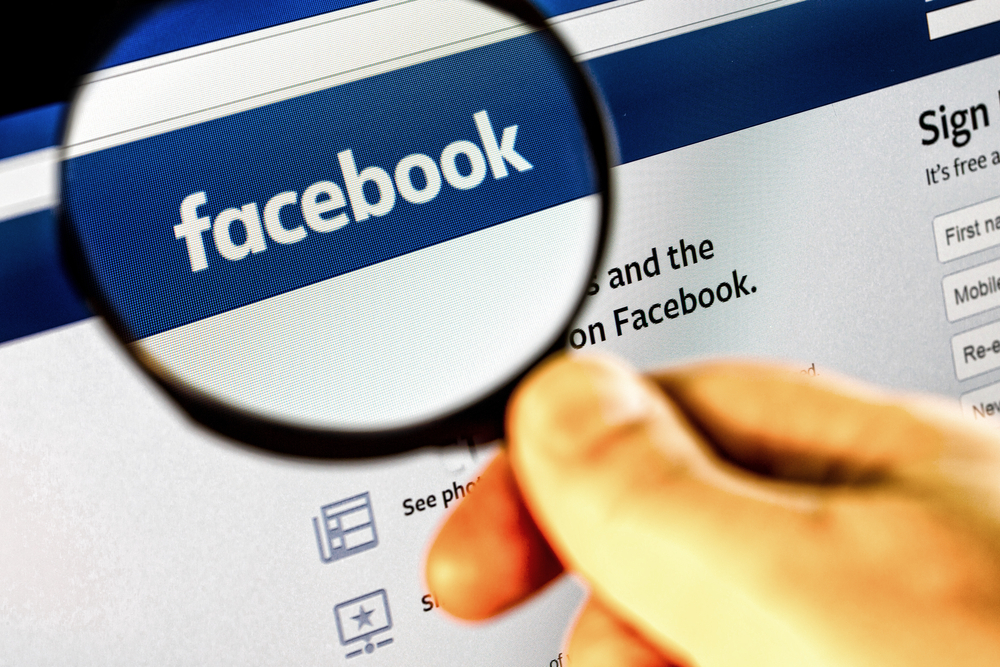Facebook Shared Your Data with Chinese Companies
Facebook confirmed that it gave Chinese mobile-phone makers access to user data so they could develop device-specific Facebook apps.
Facebook said yesterday (June 5) that it currently has data-sharing agreements with at least four Chinese technology companies, including Huawei, Lenovo, TCL (which now manufactures BlackBerry phones), and Oppo (the parent company of OnePlus).

Facebook said the four companies were among around 60 companies worldwide who have such data-sharing deals with the social-networking giant, including Apple, Samsung, and HTC. Manufacturers were given the ability to access some Facebook data so that they could build device-specific apps and interfaces to let customers easily use and sync with Facebook on their phones, tablets and smart devices.
MORE: 12 Computer Security Mistakes You’re Probably Making
ZTE, which is currently facing U.S. government sanctions for illegally exporting products containing American technology to Iran and North Korea, does not have such a sharing agreement, reported the Washington Post. citing anonymous sources familiar with the matter.
Both ZTE and Huawei are suspected of having ties to the Chinese military and intelligence services, and American authorities earlier this year pressured Verizon and AT&T to abruptly cancel distribution deals with Huawei. Lenovo, Oppo and TCL are not under such suspicion.
Facebook said that the data the phone-specific apps collected was stored directly on devices, and not on the phone manufacturers' servers. The company told the New York Times that its contracts with device makers have been "controlled from the get go," and that it approved each of the device-specific Facebook integrations.
It also claims that it began shutting down the program in April, after the Cambridge Analytica scandal came to light, and has already ended 22 of the partnerships.
Sign up to get the BEST of Tom's Guide direct to your inbox.
Get instant access to breaking news, the hottest reviews, great deals and helpful tips.
Many of the agreements with the phone makers originate from the days before smartphones could download Facebook-built apps from Apple or Android app stores. In order for "dumb" phones, aka feature phones, to access Facebook, the social network had to write custom application-program interfaces (APIs) that let each maker's mobile operating system communicate with Facebook's database.
This was the norm for many years until smartphones finally began to outsell feature phones in North America and Europe around 2014. It's still the norm in parts of the world, such as India and Africa, where feature phones are widely used.
MORE: Those traveling to the country will need a China VPN to access sites
The admission of Chinese phone-maker participation follows a New York Times report Sunday that broke the news of the device-maker agreements. Other manufacturers involved include Amazon, BlackBerry and Microsoft, and Samsung. The Times showed that an app using a custom API could still pull Facebook data, but since the newspaper used a 2013 BlackBerry Z10 for this, it's unclear whether it would work on newer phones.
Still, if you're scared by this, what can you do? If you're using a modern iOS or Android smartphone or tablet, you probably don't need to worry about your device: Facebook uses its apps to control all of the information flowing to and from its servers. If some of your Facebook friends are using feature phones, it's possible that information about you is being stored on those devices.
What you really want to do is minimize the amount of information about yourself that you provide to Facebook. We recommend that users access the Facebook website in private browsing mode (such as Chrome's Incognito mode, or Firefox's Private Browsing). You can do this on a mobile device as well as on a desktop.
You may also consider a desktop-browser tracker blocker, such as Disconnect or Privacy Badger. These won't hide you from Facebook's snooping, but will sign you out of the service when you're not using it so it can't track you across the web. And deleting Facebook's apps (including Facebook, Messenger, Instagram and WhatsApp) from your smartphone will prevent them from accessing your contacts and location.
Monica Chin is a writer at The Verge, covering computers. Previously, she was a staff writer for Tom's Guide, where she wrote about everything from artificial intelligence to social media and the internet of things to. She had a particular focus on smart home, reviewing multiple devices. In her downtime, you can usually find her at poetry slams, attempting to exercise, or yelling at people on Twitter.
